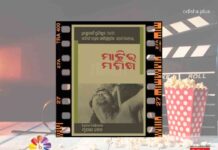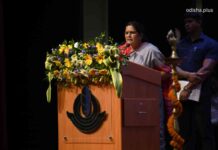By Prof Ujjwal K Chowdhury

Yes, I am proud as an India and also as a Bengali, that my fellow Bengali and an Indian born American is the joint winner of Economics Nobel this year. And I am unabashed about this. But that is not my key takeaway. That is just a point of joy and pride. My lessons are different.
My first takeaway is that you must ideally aim for a trail-blazing academic journey to reach at the peak if you so want and you are sure of it. I was not. Even in my 50s, I dabble between academics, media writing and a bit of activism here and there. But I do learn that you need a focused academic journey to make it really big in education (South Point, Presidency College, JNU Delhi and Harvard for PhD: top of the line).
Second, even if you are settled abroad, teach in an Ivy League University, you need not be disconnected from your roots. The fact that Dr Abhijeet has often been coming to India and touring, researching, lecturing and writing here is a point of appreciation and a lesson for all scholars and business leaders of Indian origin spread globally. And there are now above 60 lacs Indian origin people across the world as NRIs or PIOs (People of Indian Origin).
Third, the attachment of roots in case of Dr Abhijeet can be seen in his dress (most often than not Kurta-Pajama or Punjabi for Bengalis, Nehru jacket et al), and his cuisine. He is known to be a good cook of Indian dishes and regales his friends from all communities with his home cooked food.
Fourth, the attachment goes completely to another level to see that he has been bringing in most of his visits new and accomplished scholars from the Western world to Kolkata and been delivering lectures or conducting workshops in Presidency College and at times in JNU too to give back to his two Indian Alma Maters. He did not have to. And most others do not do so. But he had chosen to do so.

Fifth, unlike many other NRI scholars again, he did not choose to be in good books of powers that be. There are his writings and speeches criticising Indira’s emergency, Rajiv’s ill-fated Defamation Bill, and in recent times the failed demonetization and messed up GST roll-out. He has spoken in favour of open free spaces and occasions for counter views in JNU in the last three years, and have strongly opposed use of any type of force in educational campuses.
Sixth, I also appreciate the fact that in spite of being a rooted Indian and a Bengali, he did not shy away from marrying his junior, once his research student as well, and beloved and today his fellow Nobel laureate Dr Esther Duflo, thereby upholding a global outlook in personal life too. It is good to note that he usually has Esther speak first in every joint interactions and she taking the lead in writing or researching credits as well. He has acknowledged many times the immense intellectual impact of his wife on his life, his fourteen years juniors. A genius male can also be respecting his partner’s achievements even if they are in the same field. He has co-authored two stellar books with his wife Poor Economics and Good Economics in Hard Times. Remember the film, Abhimaan? (I am aware that this is his second marriage after divorce from his earlier Bengali wife).
Seventh, he has been candid about the fact that he was arrested and jailed in Tihar Jail during a protest during the turbulent Indira years after students ‘gheraoed’ the then Vice Chancellor PN Srivastava of JNU later he was released on bail and charges were dropped against the students. This I am mentioning to bust the myth that only goody goody bookish guys go ahead to have great careers. A socially alert and sensitive student can surely be involved in the issues of his times around.
Eighth, his work focuses on development economics. Together with Esther Duflo he has discussed field experiments as an important methodology to discover causal relationships in economics. Banerjee and his co-workers try to measure the effectiveness of actions (such as government programmes) in improving people’s lives. For this, they use randomised trials, similar to clinical trials in medical research. For example, although polio vaccination is freely available in India, many mothers were not bringing their children for the vaccination drives. Banerjee and his wife, tried an experiment in Rajasthan, where they gifted a bag of pulses to mothers who vaccinated their children. Soon, the immunisation rate went up in the region. In another experiment, they found that school students learned better when teaching assistants were appointed to help them. This underlines a great value for academicians: applied knowledge, rooted and tested empirically and on ground, can only bring impacting changes.

Ninth, in spite of being in a privileged global academic position, Dr Abhijeet has never let his spirit to being sensitive about and responsible to the marginalised people ever wane or waver. The books named above and his innumerable lectures in the developing nations always have harped on practical measures to tackle global poverty and bring masses outside the vicious cycle of destitute lives. He has consulted many non profit organizations and governments on issues and policy matters in this direction.
Tenth, Delhi government’s important education reform project titled Chunauti and the concept of Outcome Budget (stating the outcomes of the previous year’s budgetary allocations along with the new year’s budget) are inspired by Dr Abhijeet’s writings and concepts. Minimum Income Guarantee idea for raising human dignity, grassroots consumption and overall productivity of the people which have been strongly advocated by him are at the roots of NYAY policy advocated by Congress in its manifesto. Several other governments around the world in developing countries have adopted one or the other suggested policy measures of Dr Abhijeet, like those related to micro finance impact, means of increasing purchasing power at the bottom of the pyramid, etc. (Hope Indian government also picks up his brains for combating worsening cyclical and structural economic slow-down today). The fact that Dr Abhijeet could translate his theoretical studies (with empirical data) into real life actual and potential policies is a great achievement for any academic wanting to make an impact with his work.
The author is currently the Pro Vice Chancellor of Kolkata based Adamas University, and earlier the Dean of Symbiosis and Amity Universities.

























